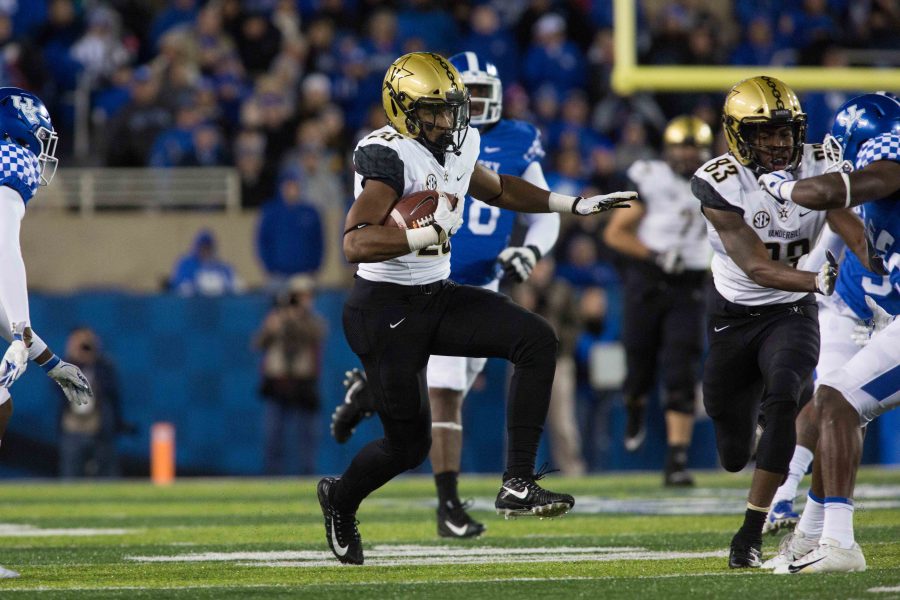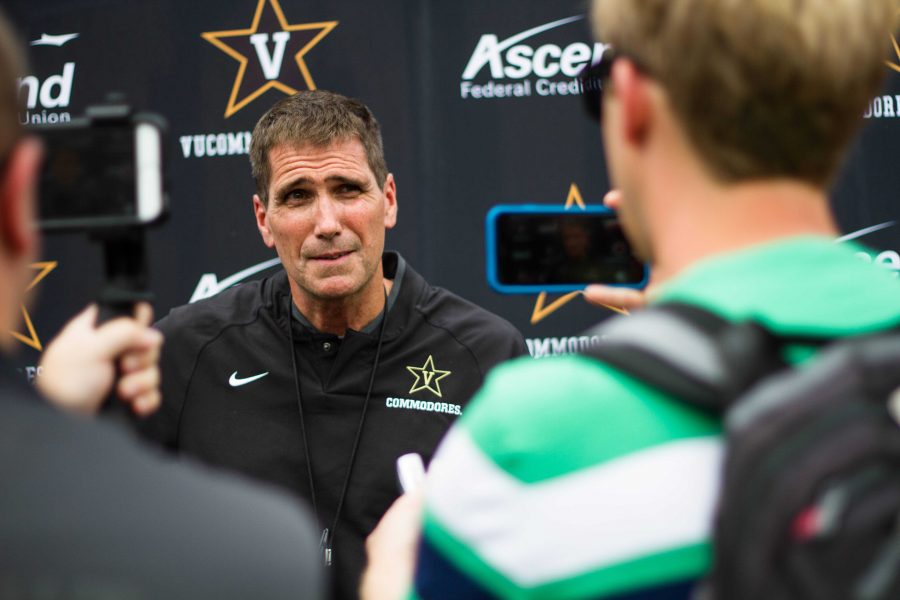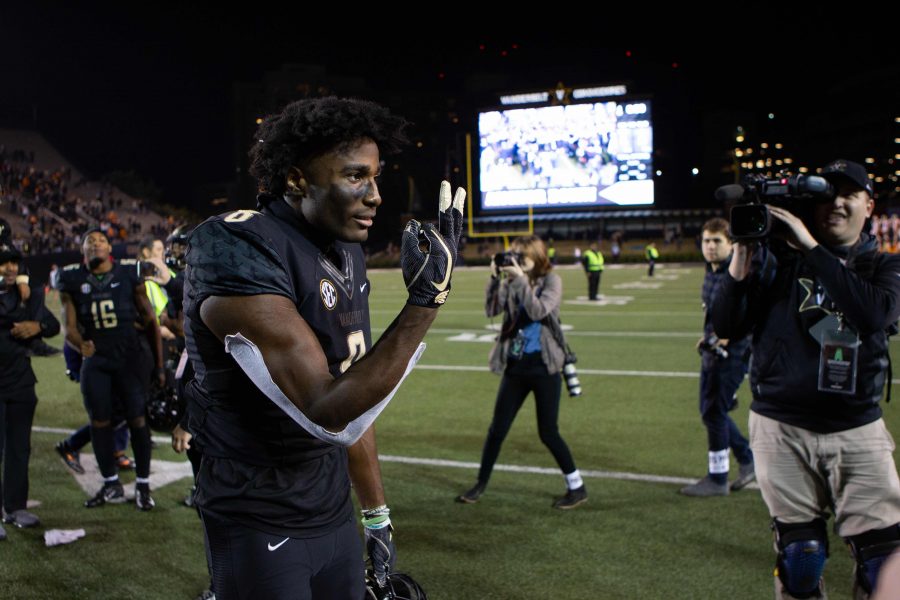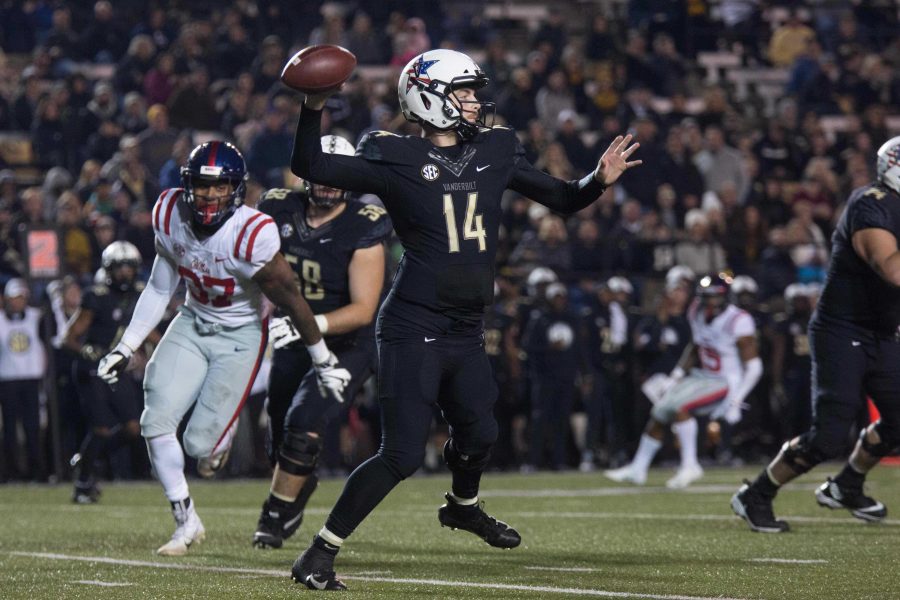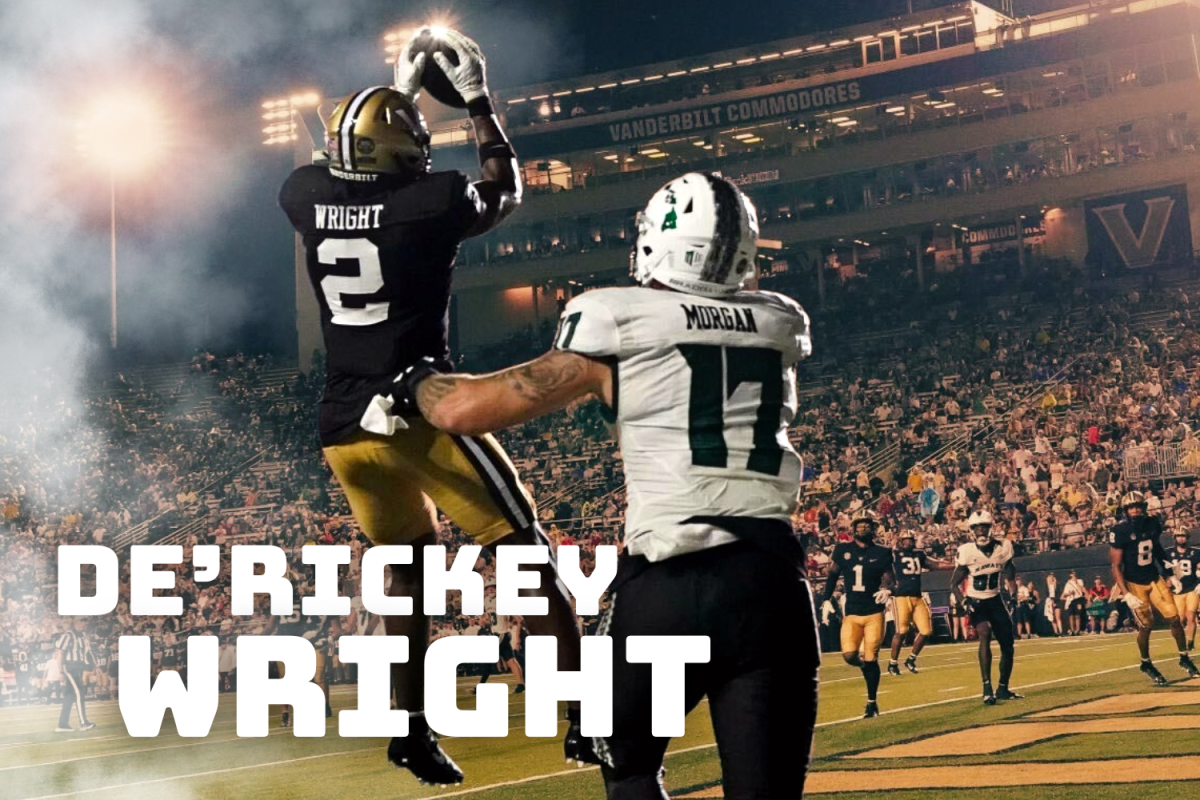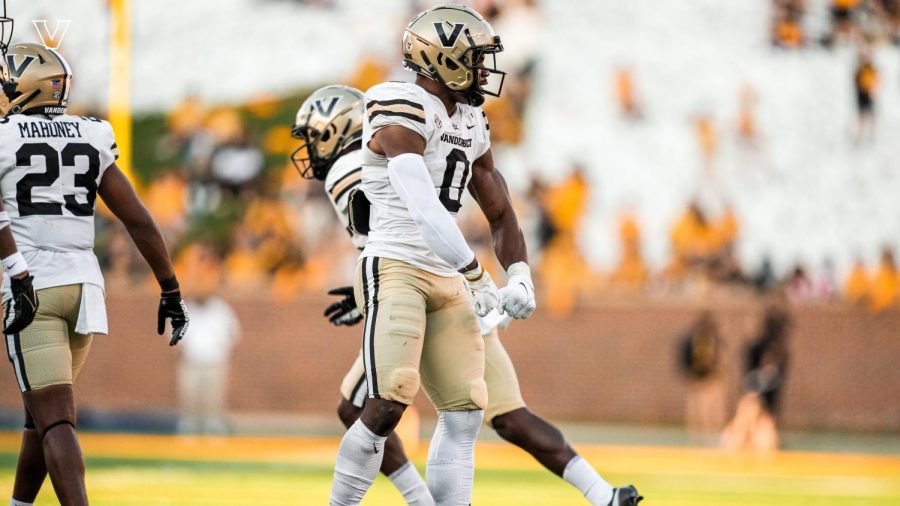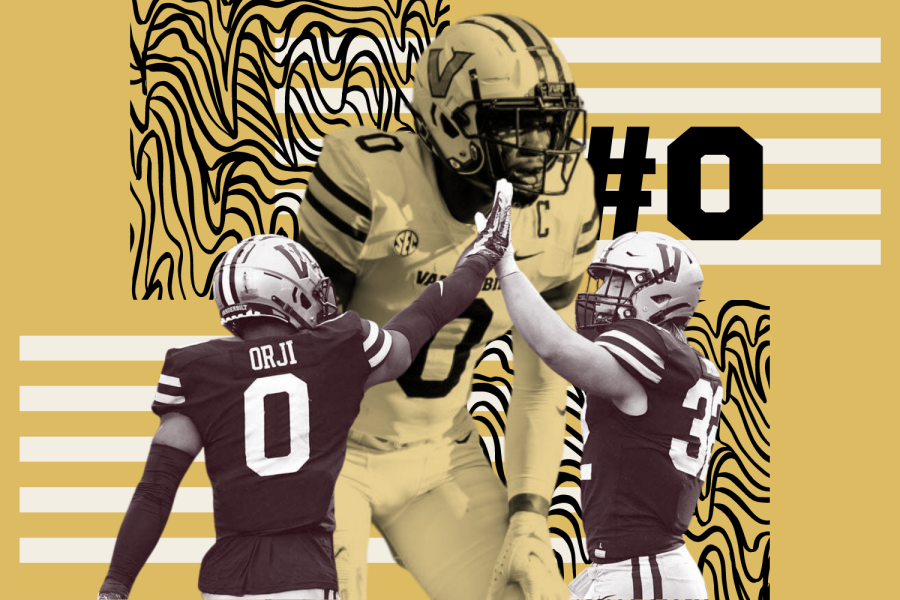LEXINGTON, Kentucky — Well, it’s Groundhog Day at Vanderbilt. Again.
As Phil Connors in the movie Groundhog Day said, “When Chekhov saw the long winter, he saw a winter bleak and dark and bereft of hope. Yet we know that winter is just another step in the cycle of life.”
However, as Vanderbilt fans have come to understand, the long winter is less a cycle of life and more of a way of life.
The Vanderbilt Commodores once again saw an upset bid slip through their grasp with a 14-7 loss at the #14 Kentucky Wildcats. It was an all-too-familiar story for the Commodores: an early lead, some missed opportunities, questionable play calls and eventually the better team won.
The season is not lost yet, but this brutal trend of near-wins must end soon, or there will have to be some serious discussions about the future of this program.
Here is your Commodore Brunch menu for this week:
Coached Away a Win

Even though Vanderbilt should have taken advantage of more scoring opportunities in the first half, the game ultimately turned on Vanderbilt’s failed fourth-down conversion in the fourth quarter.
After using a fantastic throw downfield from quarterback Kyle Shurmur, Vanderbilt drove into the red zone before the drive stalled. Running Back Jamauri Wakefield was stuffed on third-and-one near the 15 yard line, which set up a decision for the Commodores.
The team decided to go for it, and ran almost the exact same play again with the exact same result.
The ball was turned over and Kentucky marched the other way for the game-winning score.
Throughout the game, Vanderbilt’s offensive players showed that they have the talent, dedication and skill to compete with some of the best SEC teams. Shurmur delivered some key throws. Wakefield ran hard all game. Running back Ja’Veon Marlow made an impact even with just two carries. Wide receiver Kalija Lipscomb made some big plays as well.
However, all of that was wasted because offensive coordinator Andy Ludwig decided to run two plays that were doomed to fail in a key short yardage situation.
While head coach Derek Mason acknowledged (accurately) that a missed block on the fourth-and-one play led to its demise, that still doesn’t address the fact that running almost the same play on back-to-back short yardage situations late in the game is unacceptable.
The photo above is how Vanderbilt lined up on fourth down. This is how Vanderbilt lined up on the third down immediately preceding it.

The only change made between the third down setup and fourth down setup was moving the wide receivers at the bottom of the frame a bit closer to the line, making it even more obvious that the play was going to be a run.
Someone who doesn’t know the difference between a first down and a field goal could have seen that play coming.
Yes, hindsight is 20/20, but there were multiple examples of other plays that worked earlier in the game that could have been used on either third down or fourth down. Ludwig actually called some pretty good plays earlier in the game, which made that fourth quarter sequence even more frustrating.
Slip screens worked. Marlow’s end-arounds worked. A quarterback sneak could have worked. Plenty of other plays could have worked.
The most obvious play in the playbook didn’t work.
In fact, Mason defended his offensive coordinator’s decision rather vehemently after the game.
“I took a timeout and asked him [Ludwig] to give us our best call,” Mason said. “So, with that being said, he felt like that was the best call and we rolled with it. I don’t second guess it, I don’t need to second guess it. If you’re trying to turn this into something that it’s not, don’t do it.
“At the end of the day, we didn’t get the down. You don’t get the down, we turn it over, defense has got to stop them. That’s it, man. This has nothing to do with Andy Ludwig. We called a play, should have blocked it, should have got the first down, we didn’t. Keep going.”
Based on this quote, it seems Mason is in danger of falling into what I like to call the “Mike Mularkey Trap.”
You may recall that the Tennessee Titans head coach was on the cusp of earning a contract extension with the team last season, but reportedly refused to part ways with his coordinators, including offensive coordinator Terry Robiskie. As a result, Mularkey was let go along with his coordinators.
Mason has the chance to keep coaching at Vanderbilt beyond this season. He’s got a contract extension, and Vanderbilt’s toughest games are behind it this season. But, he has to acknowledge when play calls hamper what is otherwise a dynamic offense filled with talent.
I’m not saying he has to throw Ludwig under the bus. That would be unfair to everyone involved. But if he does not see what is happening game after game, Mason will go down with Ludwig’s ship.
The Bolar Express

Despite the grim outlook, it wasn’t all bad in Lexington.
In fact, one of the biggest developments on the offensive side of the ball might have been the emergence of C.J. Bolar as that all-important second wide receiver target.
Bolar had two catches for 78 yards and the only touchdown of the game. He was targeted a few more times, including on Vanderbilt’s last drive, but overall he showed a lot of promise. On his catches, he showed awareness of where the ball was going and where he should catch it. His touchdown was an over-the-shoulder grab with a defender grabbing at his back. That’s not a play that many wide receivers can make with ease.
Without fellow freshman Cam Johnson in the lineup, Bolar will have to keep making plays in the air if Vanderbilt’s offense wants to truly fire on all cylinders.
“I think all of these guys are capable,” Mason said. “C.J. has been making plays for awhile. I don’t think it’s new, I think he made the plays that came to him. I know he wishes he had the opportunity on the sideline to make the catch that was down the sideline, but when it’s all said and done, these guys are going to continue to play hard and their quarterback has to continue to get these guys the ball so they can make plays.”
Rushing Numbers: Do They Lie?

The biggest reason why this game was so close in the first place was because Vanderbilt’s rushing defense did an excellent job of containing Kentucky’s dynamic rushing attack led by Benny Snell Jr.
Kentucky ran the ball 53 times for 280 yards, good for a little above five yards per carry. That may not seem like a good stat line for the defense, but keep in mind that most teams could rush for that many yards if they carried the ball 53 times. By comparison, Kentucky ran just nine passing plays that went for 18 yards.
Realistically, two lengthy drives in which Kentucky was able to wear down the front line and score made the difference on defense. In total, the Vanderbilt defense let Kentucky drive more than 50 yards just twice all game.
“Just little things again,” linebacker Jordan Griffin said of the breakdowns on Kentucky’s two scoring drives. “We played well all game, but just a few assignments blown here and there, a couple guys getting out of their gaps. That cost us late in the ball game. He [Snell] is a great running back and he’s going to find the holes, man. We’ve just got to fix things like that.”
The good news for Vanderbilt is that none of Vanderbilt’s future opponents rely so heavily on the run, so another defensive performance like this should be able to make other offenses look rather one-dimensional.
Vanderbilt hits the road again next week in search of that SEC win when the Commodores take on Arkansas.

